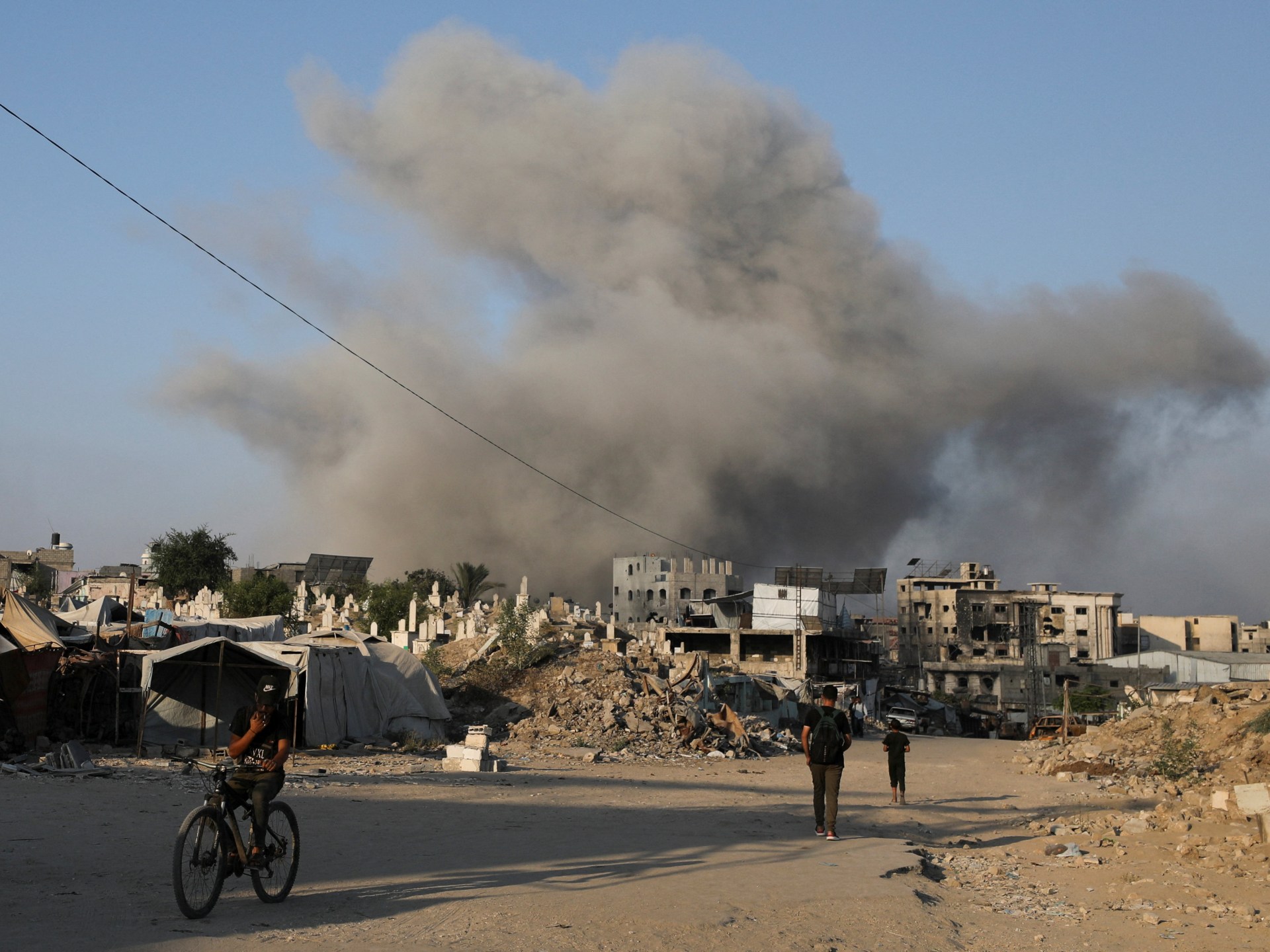Shujayea, my home town in east Gaza, is gone! Without a single stone left on another, the entire building was reduced to rubble. The dust and destruction that once accompanied the sounds of children’s laughter, the vendors’ calls, and the familiar rhythms of daily life now smother the streets. What was once a vibrant, enthralling community has been completely destroyed.
My brother Mohammed returned to Shujayea to check on our family home a few days ago. When he returned, he informed my father that only a few shattered columns and broken walls were left. We learned soon after that my father had braved the most extreme danger and witnessed it with his own eyes. He made the decision to walk through the remnants of our past, a place where every step can lead to death.
My grandfather and father spent years working on the house that embodied my dad’s dreams and left marks of his labor and sacrifice. He raised his children there, where we celebrated weddings and birthdays, and where numerous family memories were made. It is now only rubble, though.
However, this particular house is not the only thing that our family is losing. My sister Heba’s demolished home, my sister Heba’s demolished apartment, my sister Somaia’s two burned apartments, and my father’s destroyed home are now my own burned apartments, my sister Nour’s bombed apartment, and my sister Nour’s demolished apartment. Add to this list my uncle Hassan’s destroyed building, my uncle Ziad’s building, my uncle Zahir’s residence, my aunt Umm Musab’s apartment, my aunt Faten’s apartment, and my aunts Sabah, Amal, and Mona’s completely destroyed homes. And our immediate family only suffered these losses. Numerous friends, neighbors, and relatives have witnessed their homes destroyed, and their memories are buried beneath the debris all around us.
Not just the staggering financial value of what we have lost, this is important. Although the homes were filled with valuables, including furniture, personal belongings, and valuable possessions, much more was lost. We have lost something that is irreplaceable. A house can be rebuilt, but the connection to the familiar streets and community where generations of your family have lived cannot be changed with bricks and cement.
More than just buildings, Shujayea. Its members bonded through shared histories, relationships, and memories of everyday life. The ancient Ibn Othman mosque, which echoed with prayers during Ramadan, the small corner shop where we gathered to chat, and the neighborhood bakery where we bought fresh bread at dawn. These were the areas where children played, families celebrated, and neighbors fought it out for each other in the good and bad times.
When a neighborhood like Shujayea is completely destroyed, the walls become the result. No reconstruction project can truly heal because of the destruction that ties neighbors, displaces families across shelters and refugee camps, and leaves behind a deep wound. Although a rebuilt house may have four walls and a roof, it won’t be the same as the one that once housed generations of tales.
My family is not unique to this loss. Nearby neighborhoods across Gaza have been flattened completely. The history of a family, the joy of the children, the elders’ wisdom, and the love of a once-thriving community are hidden in each pile of rubble. The human cost of this war cannot be accurately expressed in terms of money or damage assessment, but every home destroyed is a silent example of it.
Identity is what we have lost in addition to property. A person’s life unfolds in a home, where milestones are observed, where grievances are shared, and where bonds are forged. A whole population is being displaced from the places that defined them by the destruction of so many homes. It is a deliberate destruction of both lives and those of memory, heritage, and belonging.
What was lost will not be recovered by reconstruction. If new structures ever are constructed, they will adorn the graves of our memories. They won’t bring my father’s years of hard work back to life, nor will they restore his sense of security and comfort. They won’t bring back the warm, familiar, and vibrant neighbourhood we were used to know.
Generations-long will be left with the wound caused by Shujayea’s destruction. Not just humanitarian aid or reconstruction funds, though. The heart and soul of a community is purposefully destroyed here. No amount of concrete can rekindle friendship, rekindle memories, or reunite dead neighbors.
Shujayea has vanished. And with it, a portion of us has been interred. We continue to cherish the stories, the love that once permeated our homes, and the hope that justice will prevail in the future. Because they can destroy our homes, they can also destroy the memories and bonds we hold dear to us in our hearts.
Source: Aljazeera

Leave a Reply